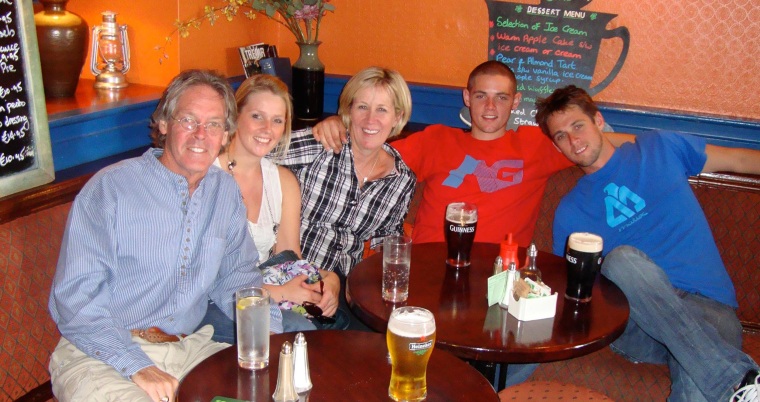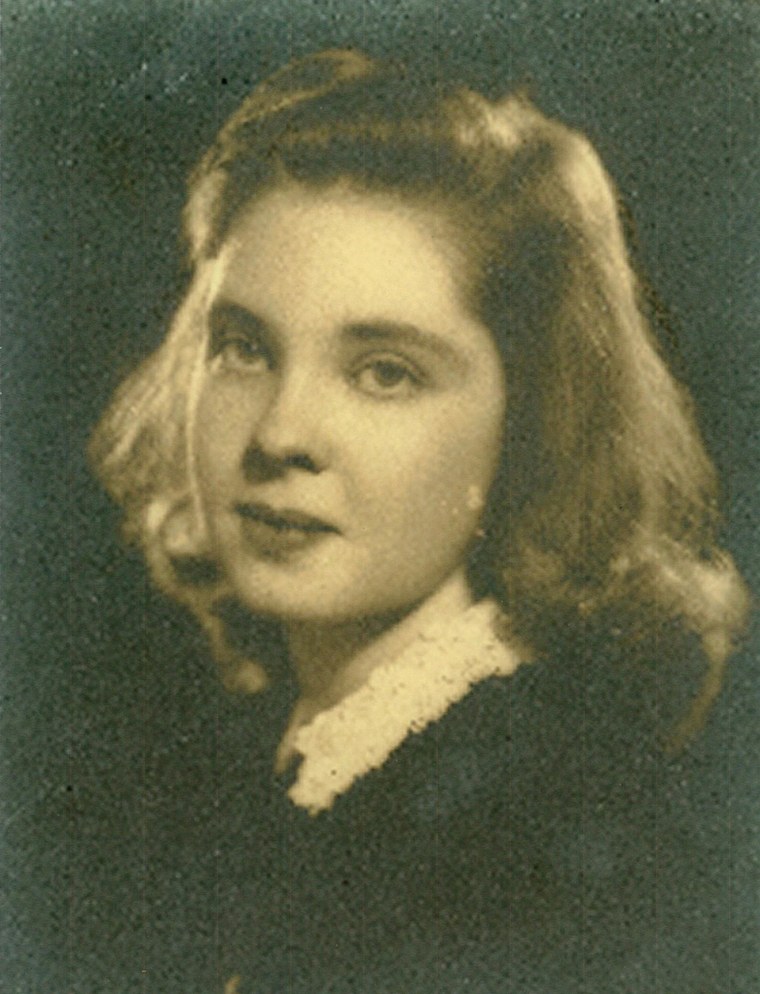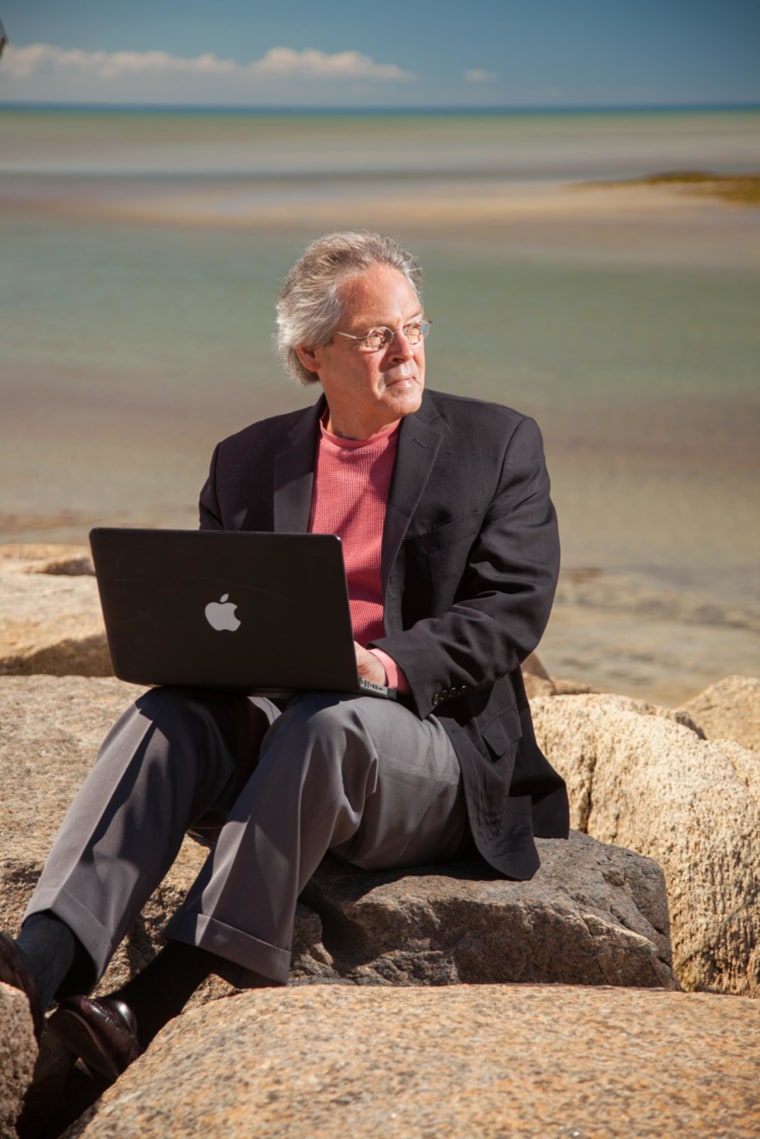In 2009, award-winning journalist Greg O’Brien was diagnosed with early-onset Alzheimer’s; he was just 59 years old. It’s the kind of news that no one is prepared for, and yet O’Brien, who had watched both his maternal grandfather and mother succumb to the disease, was perhaps more prepared than most.
O’Brien turned his reporter’s eyes upon himself, taking copious notes, and chronicling the daily challenges and indignities of the disease. The result of that work is "On Pluto: Inside the Mind of Alzheimer's,” a deeply personal memoir which O’Brien has dedicated to his mother; her courage, he says, taught him to stand firm in faith against “a demon of a disease.”
In fact, O’Brien is facing a war on two fronts, although he has resolved to fight only one of them.
“I have prostate cancer too,” he says. “I’m not treating it because I’m not going to go to a nursing home. That’s my exit strategy.”
It’s that kind of candor, combined with O’Brien’s humor, faith, and devotion to his family, which makes “On Pluto” a startling and often devastating account of what it is to defend your mind, body, and way of life from an insidious and as yet incurable disease.
Here, the writer/reporter and subject of a documentary shot by “Hoop Dreams” director Steve James, discusses his coping strategies, bouts of rage, and the role his mother played in encouraging him to tell his story.
Writing a book is a huge undertaking in and of itself; you took that on with the added challenge of dealing with Alzheimer’s. What was the hardest part of writing the book?
The hardest part was stripping myself naked. It’s very difficult to bare your soul and talk about horrific things that are happening. I’ve been a reporter, writer for 40 years, and the only thing I felt confident about was taking notes. So, for six years I took detailed notes from inside the mind of Alzheimer’s, and I did that on instinct; I wasn’t even sure that I was going to write a book.
It was a tremendous undertaking; it took me two years to write, writing several hours a day. It was a painful but purifying process.
I chronicled what was happening with my mother and what was happening with me. I had the help of a number of good writers and editors, one of which was Lisa Genova who wrote “Still Alice.” She wrote the foreword for the book, and she was a big help in guiding me. It was a tremendous undertaking; it took me two years to write, writing several hours a day. It was a painful but purifying process.
So many people dealing with dementia feel shame; you chose to share your experience with the world. Can you talk about that decision?
At first, I worried what everyone would say. You have to work through the denial in the family, and I had to work through the denial in myself. I had to work through what friends and colleagues and clients would say. We’ve had a lot of wonderful books about Alzheimer’s, but I’m not so sure we’ve had a book written by an investigative reporter embedded in the mind of Alzheimer’s, which happens to be his own mind.
My reporting instincts have allowed me to step outside the person of me and report on what’s going on. It’s a very complex painful process.
60% of my short term memory is now gone in 30 seconds. I don’t recognize often where I am in familiar places. I don’t recognize often people I’ve known all my life. I see things now that aren’t there -- the impolite word for it is hallucination. I go into tremendous rage. I’ve lost self-esteem; I may sound confident, but that’s the reporter in me speaking. My reporting instincts have allowed me to step outside the person of me and report on what’s going on. It’s a very complex painful process, but I’m doing this book for my children and grandchildren, and the children and grandchildren of anyone who wants to read this book. Until we -- I hate to use this word -- but make Alzheimer’s “popular,” we’re never going to catch the attention of the individuals we need to find a cure for this disease. It’s always going to be thought of as a disease you get at 85 and then you die, and who gives a sh*t.
You reference the rage that you experience. Can you talk a little bit about that?
It can start as agitation but it becomes tremendous rage. I think it’s been said that there are no two cases of Alzheimer’s which are the same, but when I don’t remember something I know how to do, I get angry. There are times I’ve picked up a phone and I don’t remember how to dial, and I’ve thrown it across the room. I live on Cape Cod and I’ve got an acre and a half of lawn, and I went out one day and looked at the sprinkler and I didn’t know what it did. I got so mad, because I knew that I should, that I threw it against an oak tree and broke it into a million pieces.
I think of Alzheimer’s as a loose plug in a socket. The lights blink, and then the plug falls out. So, you’re doing something and the synapse doesn’t occur, and you don’t know where you are, who you are, or what the hell you’re doing. And you get angry. Then you’re able to put the plug back in, and then it falls out again. At some point, you can’t put the plug back in, and everything goes dark. The fear of that propels one into tremendous rage.
These demons don’t know who they’re screwing with. I think you can fight this disease in faith and humor and hope.
I have tremendous faith. I get angry at God, but God is sustaining me. I get angry with people I love; I cry out and say, “What’s going on here?” I’ve been to the graveside of my mother to say, “What’s happening?” I cry a lot at times. And I laugh a lot. In writing this book, I’m trying to tell people: you’re going to experience all that, but you can live with this if you fight this disease. I have a saying, which I use in the book, and I can’t say the precise words, but it’s, “These demons don’t know who they’re screwing with.” I think you can fight this disease in faith and humor and hope.
Many people don’t want to know what lies ahead when it comes to illness; you had no choice because you saw your mother live with Alzheimer’s. Do you consider knowing how the story unfolds to be a blessing or a curse?
I consider it a great blessing because in Alzheimer’s you’re stripped naked; you see the good, the bad, and the ugly. And now you have a chance to try and fix the ugly. It’s a wrenching experience, but you buck up and you say, “Ok, maybe I can start to do some things right.” Our family has never been closer. I wouldn’t want Alzheimer’s taken away from me now, because I think I’m a better person for it.

You say in the book that memory provides context and perspective, but it does not define us; the inner spirit defines us, and dementia cannot rob us of that. Can you talk about arriving at that insight?
Well, it was gradual. I used to think of my brain as a big garbage pail, and I put all sorts of stuff in it: good stuff, bad stuff, stuff that really no one should care about. But as the brain shrinks, it becomes more of a flower vase. I feel, with the human brain, you can pick and choose -- as my mother did and taught me -- what you preserve for a period of time. I’m working off what doctors say is a cognitive reserve. My essence, my being, my long-term memory, is me as a writer and a communicator. It takes exponentially longer now -- at some point I won’t be able to do it -- but I’ve chosen to protect it.
My essence, my being, my long-term memory, is me as a writer and a communicator.
With the memories, what I did as I started forgetting things, is I arranged my office with all sorts of news clips: stories that I’ve written, news stories from around the world; all in chronological order, and likewise with family pictures. So, when I come into my office, it’s like I’m coming back into my memory, and I feel that no one can rob this office, even though my memory is robbed. The other thing is, I’ve learned to write and speak from the heart, not the head. I think it’s been said that when people speak from their heart, often it’s far more articulate and powerful, and I’ve learned in Alzheimer’s to really push to speak from my heart and not my head.
You detail the many coping strategies you use to navigate social situations, from deploying your talents as a journalist to relying on acting skills you picked up at school.
I think with Alzheimer’s you deal out of instinct. Maybe God was preparing me for Alzheimer’s since I was a kid, and is saying, “OK, now maybe you could do something good in your life.” All of the things that I learned as a reporter and in school, they are strategies that I have used now in my life. If I saw you and I was talking to you, and I didn’t remember who you were, as a reporter, instinctively, because that’s my muscle memory, I would start to ask you questions. And if I can fill in a blank, then I can connect who you are. And if I can’t, by the time I was done, just like a reporter, you would probably have no clue that I didn’t know who you are.
One thing your writing so clearly captures, is the relentlessness of this fight, and how exhausting it is. Of all your coping strategies and support systems, what sustains you most?
I think it’s my family. I know the ending of this story, and I don’t want to leave my family. So, it’s a survival instinct in me, but it’s a survival instinct in a game that I know I’m not going to win. But I’m so angry at this demon, that I’m not going to let this demon push me over, as it didn’t push my mother over.
I’m so angry at this demon, that I’m not going to let this demon push me over, as it didn’t push my mother over.
So, every day, I get up in the morning and I think of my mind as a filing cabinet with everything arranged in neat files. It’s like someone went into my freaking brain at night and dumped all the files on the floor. And then in the morning, before I get out of bed, I’ve got to put all those files -- the who, what, when, where, why, how of my life -- back in my brain, so that I have a sense of my own identity.
Journalism always taught me to persevere...But I know, like my mother, that there’s going to come a time when I’m done. And there are days when I’m not sure what’s left in the tank.
Journalism always taught me to persevere, to just keep persevering and asking the questions. And in addition to my faith, that perseverance sustains me now. But I know, like my mother, that there’s going to come a time when I’m done. And there are days when I’m not sure what’s left in the tank.
Just weeks before your mother died, she said to you, “We all have a purpose in life. Go find it!” What is your purpose?
She always talked to me about my writing, she always encouraged me to write. In Alzheimer’s, she was constantly saying, “Greg, tell your story.” And in the end, I think she was telling me, “Greg, don’t let this happen to other people. Don’t keep it to yourself.”

This interview has been edited.
For more information and inspiration visit MariaShriver.com
